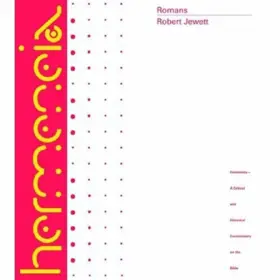

Collections
This book appears in the following featured collections.
- Essential Pauline Commentaries by Marcus Maher
- New Testament Commentaries & Monographs by Princeton Theological Seminary
- Nijay Gupta's Top NT Commentaries by Nijay K. Gupta
Reviews
Things I liked:
Jewett gives, by far, the most helpful and most thorough background to Romans. It was not merely information for information’s sake. He did an excellent job of showing the impact of the background (especially the section on Spain) on the interpretation of the text.
The structural comments and discussion of rhetorical features was impeccable. Jewett was thorough and well argued. I appreciated this because it made his results testable. He then uses his rhetorical analysis to drive his exegesis.
No commentary on Romans is as thorough in textual criticism. Jewett attempted to give every single variant found in the manuscript tradition for Romans, his assessment of its originality, and what may have been the cause for the variant (e.g., scribal error, ideological alteration, etc.).
Jewett is also thorough on issues of grammar and lexicography, sometimes even more so than Cranfield. For a commentary whose focus isn’t on grammar, the amount of information you get is generous.
Criticisms:
Jewett states that theologizing is not his goal in writing the commentary, and I understand that. That does not need to be the goal of the commentary. I feel at times, though, that his interpretation went astray because he did not consider the theological framework of the text. This led to an overly situational reading of Romans.
He could have done without using feminine pronouns to refer to God the Father.
Overall Evaluation:
I give Jewett 4.5 stars. The vast majority of the commentary is extremely helpful. As a technical aid to the text one could not find a better commentary (even Cranfield’s). If he had framed things a bit more theologically, it would have received a fill five stars. Pair it with Schreiner and you’ll be off to an excellent start in studying Paul’s letter to the Romans.






